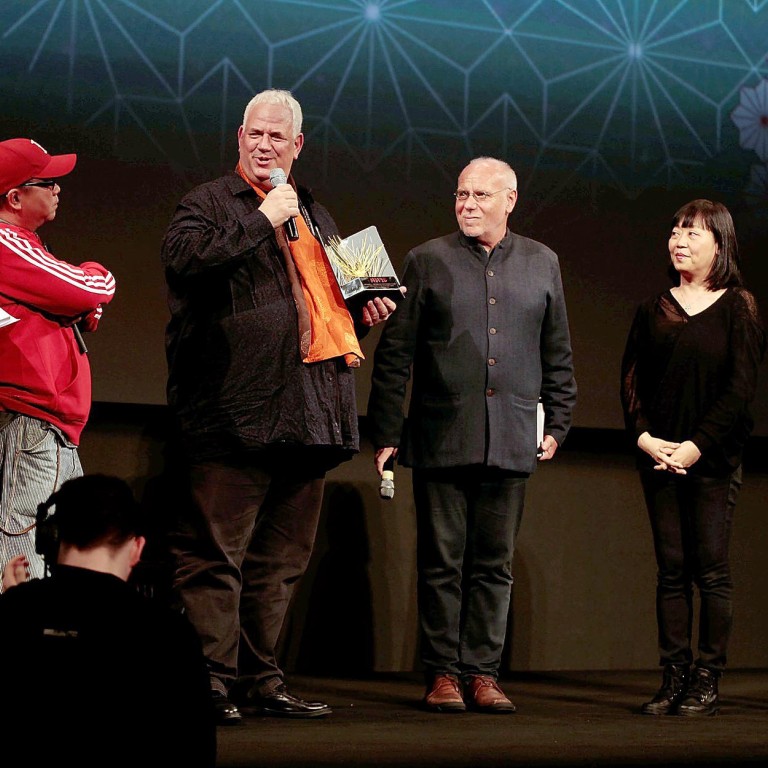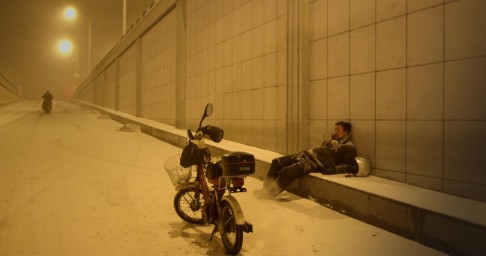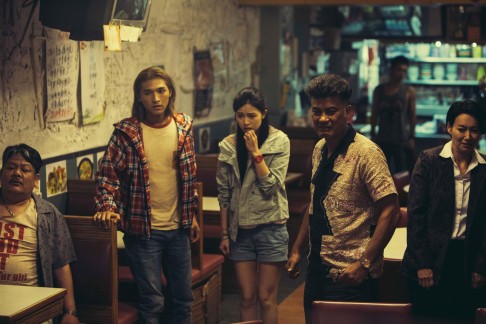
Fortissimo Films' efforts to promote Asian cinema are paying off
Fortissimo Films' efforts to promote Asian cinema are paying off, writes Mathew Scott
Michael J. Werner seemed mostly content to stick to the sidelines in his three decades in the movie business, and shared the spotlight only when it shone brightly on any success he might have been involved in.
Of late, however, there's been plenty of that for him and Fortissimo Films, the production and distribution company for which he serves as chairman. From its Asia office in Wan Chai, he has helped steer the careers of a host of the region's finest creative minds, among them Hong Kong's Wong Kar-wai, Taiwanese director Hou Hsiao-hsien and Japanese filmmaker Shunji Iwai.
So it seemed apt the American was soon looking to Hong Kong director Fruit Chan Gor for help when he went on stage at the Far East Film Festival in Udine, Italy, this year to accept the Golden Mulberry Award, given in recognition of services to Asian cinema.
It's that sense that you've got it right - and you're thrilled for the filmmaker and the producer
With one hand clasping the award, Werner was struggling to find a place to put the pages of his speech as he finished reading them, but Chan was on hand to effortlessly save the day. "See," Werner jokes to the audience gathered inside a packed Teatro Nuovo Giovanni da Udine, "that's what directors do - they like to take charge."
That may be the case but the incident has shown, again, that Werner knows who he should be working with, as he has throughout his career.
The Fortissimo head is attending the festival in the northern Italian town because of his company's involvement with two of the stand-outs on the programme: mainland director Diao Yinan's gritty thriller and Chan's wild, post-apocalyptic romp . And when we sit down to chat over coffee, he uses the two films to highlight what it is that he loves about working in the film industry.

"It's not just monetary, it's like when this experience happens at a festival and there is no monetary reward but you see people respond to a film. It's that sense that you've got it right - and you're thrilled for the filmmaker and the producer, of course." However, "when it doesn't work, we suffer their pain also, because it's not good for anybody. It's still fun, it's still exciting and it's still nerve-wracking," he says.
While studying political science and international relations at the University of California at Los Angeles (UCLA), Werner worked as a gofer at American International Pictures, to pick up some spare cash. But his career path was set in 1980 when, while working for Manson International Pictures, the then 22-year-old Los Angeles native was sent on a six-week Asia tour that started in South Korea and finished in New Zealand.
Along the way, Werner says he was able to make connections he still taps into today, including with the Kong family of Edko Films (first with founder Kong Cho-yee and now with his son, Bill Kong Chi-keung), and with Crucindo Hung Cho-sing, now chairman of the Hong Kong Motion Picture Industry Association.

"It was very early in terms of the independent film business, even in Los Angeles. The range was narrow but it was just a great career for a young person to get involved in. I wanted to be a diplomat and I guess in some ways what we do is a form of diplomacy."
Fortissimo has been at the vanguard of the rise of Asian cinema during the past two decades. Werner says that he joined the company - initially as a consultant in 1995, then as partner and chairman - because he recognised a group of people who were dedicated to their mission.
"Fortissimo had already carved out a bit of a niche for itself here," he says. "The strength of the company's founders was Asian cinema. It was part strategic, part opportunistic: strategic in the sense that no one was handling those films, and opportunistic in that there was no one else handling those films."
Werner says it was a commitment to each other that helped the company through the hard times that followed when its popular and charismatic co-founder, Wouter Barendrecht, died of heart failure in 2009, aged 43.

Fortissimo's attention these days is focused on the mainland, and Werner sees a change coming not just in terms of local productions and their subject matter but in how Chinese filmmakers and the industry plan to expand.
He points to the success of Diao's as a "game changer" and says he believes it shows the mainland audience is no longer only interested in period epics and romantic comedies. After picking up the Golden Bear for best picture at the Berlin International Film Festival in February, the film went on wide release on the mainland in March and has been rewarded with box-office takings of more than 100 million yuan (HK$125 million), the first time a non-commercial or art-house production has topped that mark.
"That exposure, that recognition, that validation by the global community that there is something significant about a film, that means something. When a modest picture comes along and you are not sure how the world is going to react to it, then it goes to Berlin and comes home with the top prize. That's like 'wow' and it really is a big deal and people want to see that film," Werner says.
"Like coming here, to Udine, where we are in a relatively obscure part of Italy, but you see the crowds that get here and how they respond to the Asian films and you feel as if you are part of something big, something that is touching people and exposing them to something they might never have experienced before. It's just a great feeling."

